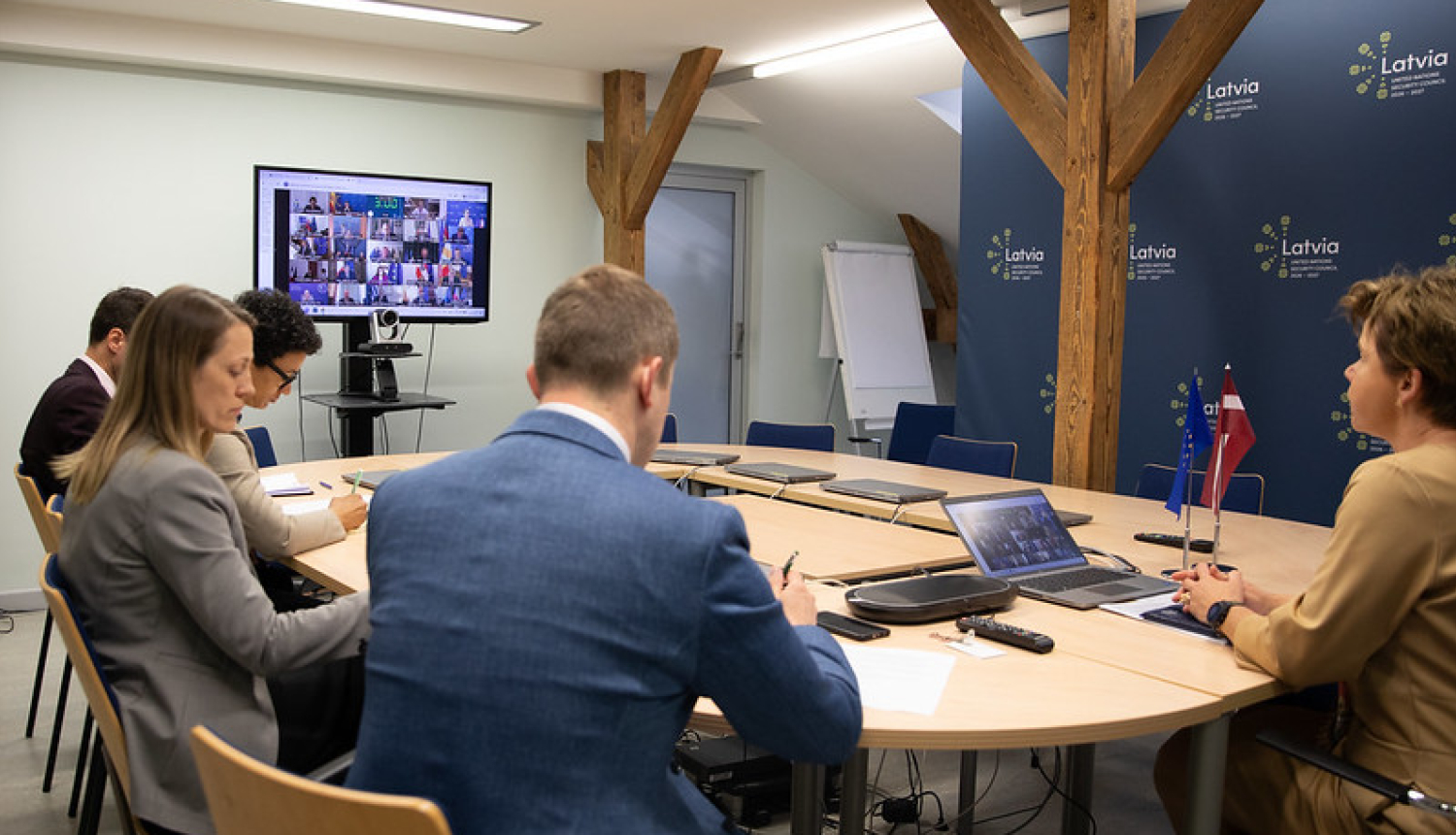On Tuesday, 17 June 2025, an informal videoconference of the EU Ministers of Foreign Affairs was convened on the initiative of the High Representative of the Union for Foreign and Security Policy, Kaja Kallas, to discuss recent developments in the Middle East. The Minister of Foreign Affairs, Baiba Braže, together with EU Member State Foreign Ministers exchanged views on the EU’s role and engagement in addressing the Middle East crisis.
Baiba Braže underlined at the meeting: “Iran must not obtain nuclear weapons. Latvia supports the EU’s sanctions policy against Iran to curb Iran’s support for Russia, Iran’s nuclear programme and its aggressive regional policy. We call on Israel to prevent further escalation that could have unpredictable broader spillover effects. At this point, the conflict already has a direct impact beyond the Middle East region.
The High Representative of the Union for Foreign and Security Policy, Kaja Kallas, said that the EU was committed to regional security, including Israel’s national security. She called on all parties to respect international law, exercise restraint and refrain from further actions that could have serious implications, such as a possible release of radioactive substances. The EU has always made it clear that Iran should not be allowed to obtain nuclear weapons.
The EU voices concern over the findings set out in a recent report by the International Atomic Energy Agency, IAEA, regarding Iran’s failures to uphold its nuclear safety obligations. On 12 June, the IAEA Board of Governors adopted a resolution finding Iran’s non-compliance with its obligations under the Treaty on the Non-Proliferation of Nuclear Weapons (NPT), since it could not provide explanations for the presence of highly enriched uranium at multiple undeclared locations.
EU foreign ministers shared information on consular cooperation in providing assistance to EU citizens in Israel and Iran.
The Ministry of Foreign Affairs and the Embassy of Latvia to Israel are closely monitoring the development of the situation and remain in constant contact with European Union Member States, the EU Delegation, and the Israeli Ministry of Foreign Affairs concerning the safest evacuation routes and the coordination of a joint evacuation of EU citizens. A state of emergency has been declared in Israel, and all official institutions, including the Embassy of Latvia, are currently closed until further notice. Nonetheless, diplomatic staff continue with carrying out their duties. According to official data, 6,062 Latvian nationals reside in Israel, and 3 in Iran.
Background information
- On the night of 13 June, Israel launched Operation Rising Lion with a series of attacks on various military and nuclear sites in Iran. The strikes are carried out with missiles fired by the Israeli Air Force, drones previously deployed near targets, and car bombs. The operation aims to crush Iran's nuclear capabilities, as Israel believes Iran’s uranium enrichment programme is is about to reach the capacity to create functional nuclear weapons.
- Israel/Iran: Statement by the High Representative on behalf of the European Union
- Updated Information for Latvian Nationals Regarding the Situation in Israel




